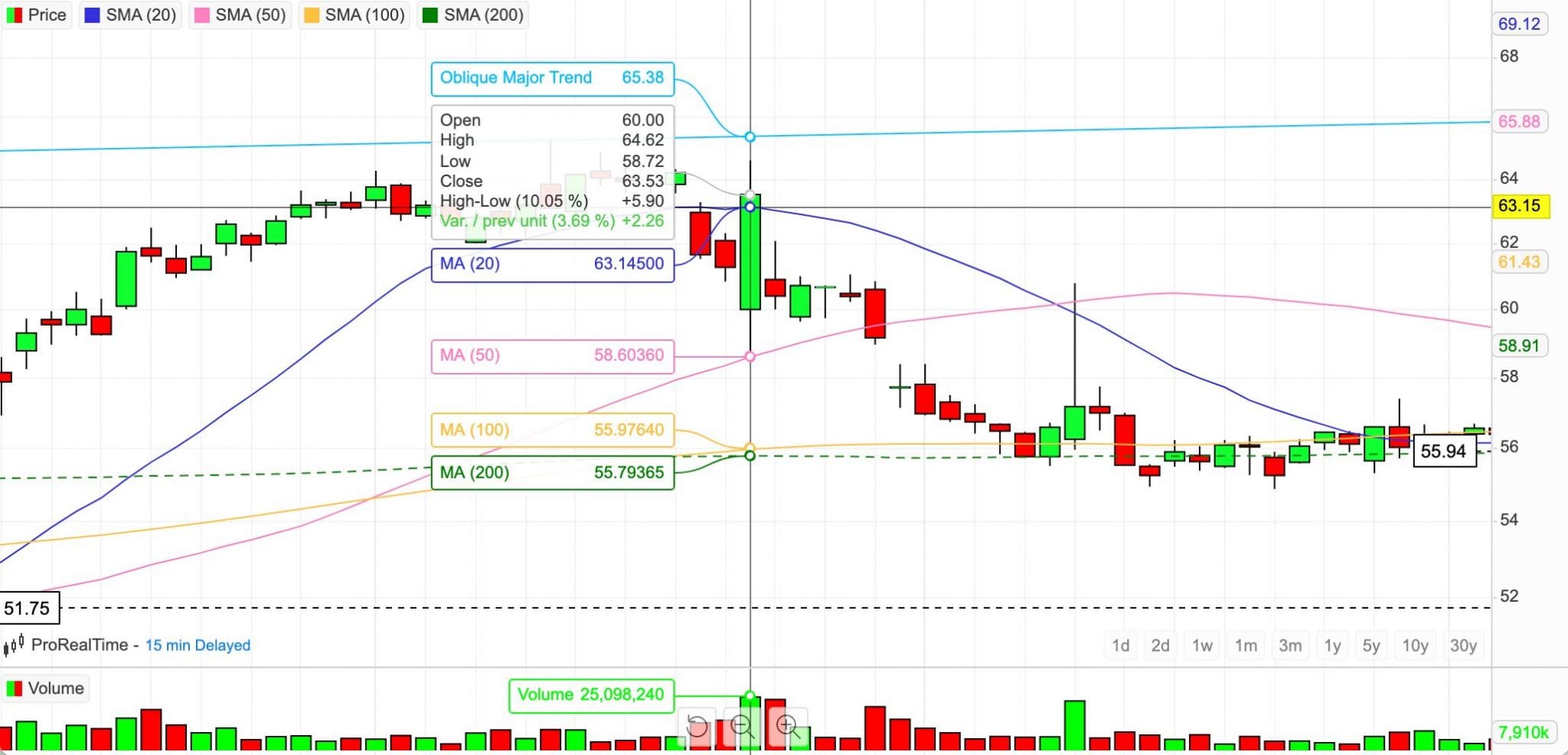Day Trading in Sweden



Sweden, renowned for its robust economy and transparent regulatory framework, offers a secure landscape for day traders to explore opportunities in the financial markets.
Sweden boasts a GDP of approximately $623 billion, with a high per capita income and a stable economic environment.
The Swedish banking sector is well-developed, and the Financial Supervisory Authority (Finansinspektionen) plays a pivotal role in regulating the financial markets, ensuring transparency, and protecting retail investors. This regulatory environment is bolstered by Sweden’s firm adherence to EU financial regulations.
Ready to conquer day trading in Sweden? This guide is your starting point.
Quick Introduction
- The Swedish Financial Supervisory Authority (Finansinspektionen) regulates Sweden’s financial markets and is considered a ‘green-tier’ authority in line with DayTrading.com’s Regulation & Trust Rating.
- Swedish traders can tap into the potential for profit in local markets, including currency pairs featuring the Swedish krona (SEK) and stocks listed on the Nasdaq Stockholm.
- Sweden imposes a flat 30% capital gains tax on profits from instruments such as stocks. However, the taxation of derivatives like CFDs in Sweden or futures and options can be more complex depending on whether they are regular investment activities or speculative trading.
Top 4 Brokers In Sweden
According to our hands-on tests, these 4 platforms are in their own league for active Swedish traders:
Day Trading Platforms in Sweden
What Is Day Trading?
Day trading involves buying and selling financial instruments like stocks, forex, bonds, or derivatives within a single trading day to profit from short-term price fluctuations.
The Swedish stock market, featuring blue-chip companies like Investor AB and Atlas Copco, provides a strong foundation for active traders.
Additionally, currency pairs centered around the Swedish krona, such as USD/SEK and EUR/SEK, offer potential for profit.
Prominent commodities like iron and copper also contribute to the diverse trading environment with Sweden one of the biggest producers of iron ore in Europe.
Is Day Trading Legal In Sweden?
Day trading is legal in Sweden and operates within a regulated framework like other EU countries.
The Swedish Financial Supervisory Authority regulates activities. It ensures that online brokers and trading platforms adhere to stringent standards to maintain market integrity and protect active traders.
How Is Day Trading Taxed In Sweden?
Profits from trading in Sweden are usually covered by capital gains tax (CGT), which is paid to the Swedish Tax Agency (Skatteverket).
However, these profits can be subject to other trading-related taxes or taxed as regular earnings under the local personal income tax (PIT).
Sweden’s capital gains tax rate is a flat 30%, applicable to investment profits and dividends. However, unlike many other countries, Sweden only allows you to deduct 70% of your trading losses against your profits, potentially impacting your overall tax liability.
Due to the complexity of Swedish tax laws, I strongly recommend that you consult with a local tax advisor for personalized guidance.
Getting Started
To succeed as a day trader in Sweden, follow these essential steps:
- Empower your trading journey by selecting a top day trading provider in Sweden. Opt for firms overseen by Sweden’s Financial Supervisory Authority, the UK’s FCA, or Cyprus’ CySEC to ensure a secure European trading environment.
- Account verification usually involves submitting copies of your Swedish ID card and a recent utility bill. Once approved, you can conveniently fund your account through wire transfers, debit cards, or local e-wallets such as Swish. Some top day trading platforms in Sweden also offer SEK accounts for convenient deposits.
- Stock traders can speculate on various Swedish companies listed on the Nasdaq Stockholm, and currency traders can capitalize on fluctuations in Sweden’s official currency with popular forex pairs, including USD/SEK and EUR/SEK.
A Trade In Action
To help you understand how short-term trading works, let’s consider a scenario with Ericsson, a Swedish infrastructure, services, and software provider for the telecommunication industry and other sectors.
Event Background
Ericsson released its earnings report, which came in below analyst expectations. The company’s fourth-quarter net sales fell 16% to SEK 71.9 billion, missing estimates of SEK 76.64 billion.
The company also said it expected a further decline in 5G gear demand from mobile operators for the rest of the year.
Trade Entry & Exit
Technically, the stock was trading above its 50-, 100- and 200-day moving averages, typically a bullish signal. However, given the negative earnings report and the overall market sentiment, I maintained a short-term bearish outlook.

The market opened, and the stock rallied for the day, which was contrary to my analysis. Therefore, I decided to wait for further confirmation of a potential reversal.
Later in the trading session, the stock price started to decline near its 20-day moving average, reinforcing my bearish bias. I entered a short (sell) position at SEK 63.15, placing a stop-loss order slightly above a recent high to limit my loss to 3.38% of my account balance.
I didn’t set a take-profit order. Instead, I monitored the price action and decided to exit when the price touched the 50-day moving average.
As the trading days progressed, Ericsson’s stock price declined, reaching my target level. I closed my short position, realizing a profit of 5.78%.
Bottom Line
Sweden’s robust regulatory framework, comprehensive investor protections, and advanced financial infrastructure create a secure and efficient environment for day trading.
The Nasdaq Stockholm is a key hub for trading stocks, options, and derivatives. Swedish traders can access various licensed domestic and international brokerage services, facilitating participation in local and global markets.
To get started, use our pick of the best day trading brokers in Sweden.
Recommended Reading
Article Sources
- Financial Supervisory Authority (Finansinspektionen)
- Nasdaq Stockholm
- Swedish Tax Agency (Skatteverket)
The writing and editorial team at DayTrading.com use credible sources to support their work. These include government agencies, white papers, research institutes, and engagement with industry professionals. Content is written free from bias and is fact-checked where appropriate. Learn more about why you can trust DayTrading.com



